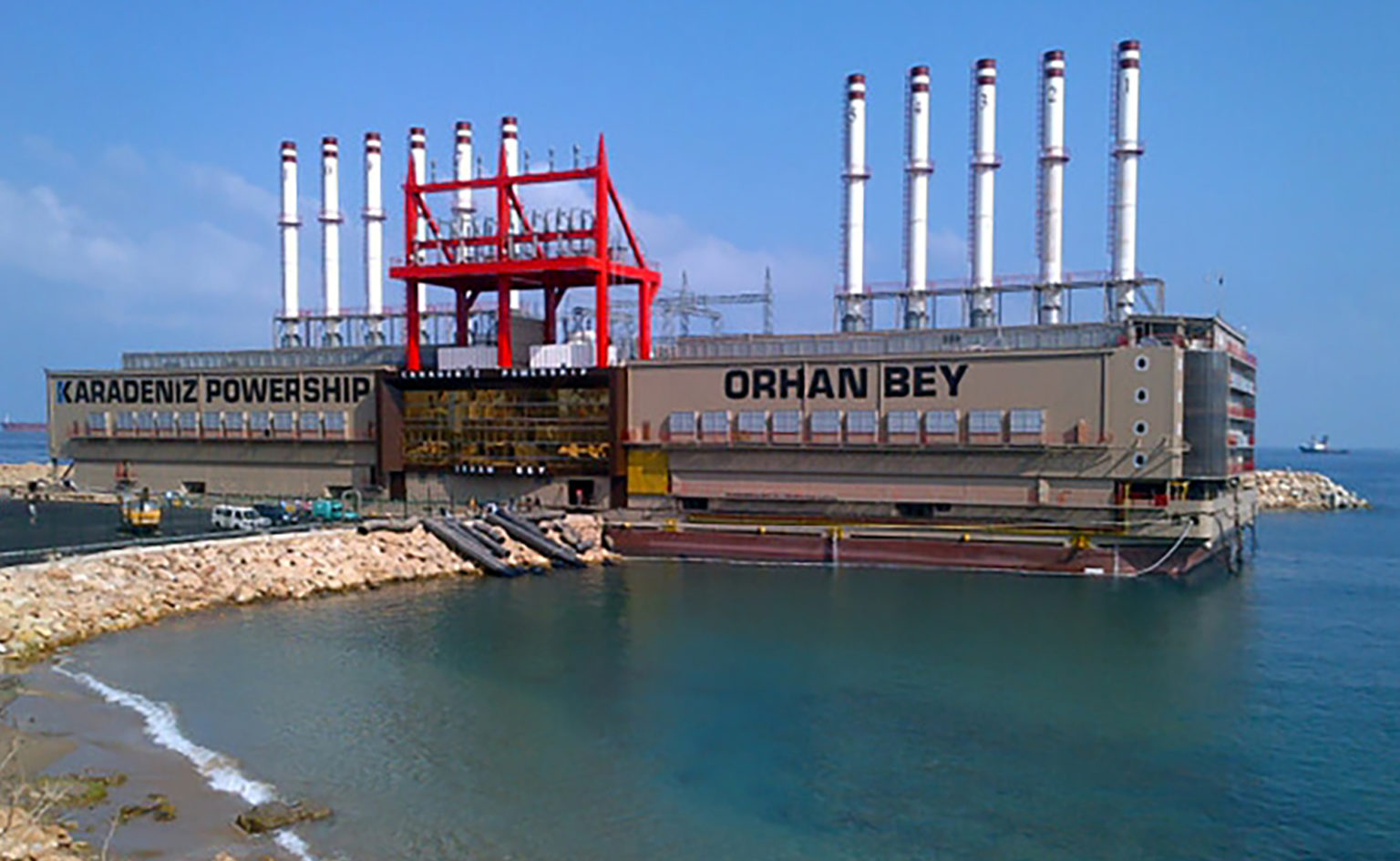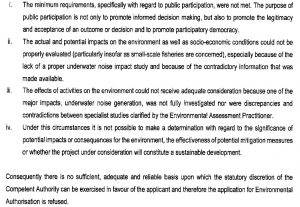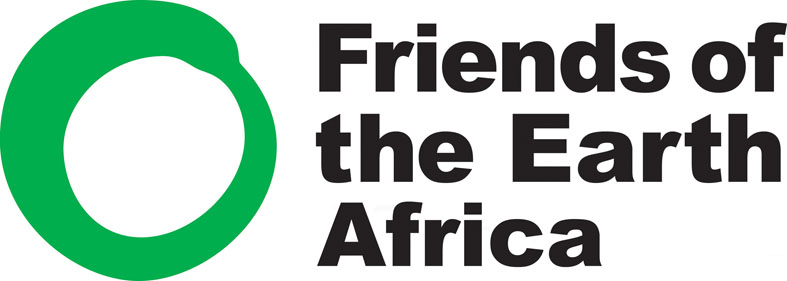
Amab-Karpowershipsinks
On Thursday 23th June 2021 the Department of Forestry, Fisheries and the Environment (DFFE) made a decision to refuse all three Karpowership Environmental Authorisation (EA) applications for gas to power at the Ports of Richard’s Bay, Nqgura and Saldanha Bay.
FOR IMMEDIATE RELEASE: 25 JUNE 2021
South Africa: Karpowership SA (Pty) Ltd is a Turkish company that received preferred bidder status in the Department of Mineral and Energy’s (DMRE’s) Risk Mitigation Independent Power Producers Program (RMIPPP), as announced by Minister Gwede Mantashe on 18th March 2021. The company applied for three environmental authorisations for the ports of Richard’s Bay (KwaZulu Natal), Nqgura (Eastern Cape) and Saldanha Bay (Western Cape). The commenting period for the Environmental Impact Assessments closed on 31st March. After consideration of shortcomings in the EIA process, Department of Forestry, Fisheries and the Environment (DFFE)’s Chief Director of Integrated Environmental Authorisations, Mr Sabelo Malaza, issued letters for the refusal of all three Environmental Authorisations.
The decision followed warnings, comments and correspondence submitted by specialists, government authorities and civil society organisations. Several organisations including Richard’s Bay Clean Air Association (RBCAA), BirdLife South Africa, SANPARK, Oceans Not Oil (ONO), South Durban Community Environmental Alliance (SDCEA), Masifundise Development Trust, Green Connection, Centre for Environmental Rights (CER) and groundWork submitted comments to the EIA. Several irregularities and deficiencies were picked up by the organisations.
Lawyer Angela Andrews representing Green Connection noted that important specialist studies including noise impact studies and their impacts on marine life and its subsequent impact on small scale fishers was excluded. Green connection submitted a Complaint’s letter dated 30th May 2021 (attached) requesting for the suspension of the EIA process for Saldhana Bay. DFFE responded with a suspension letter dated 8th June 2021. Similar deficiencies were noted in the Richard’s Bay and Nqgura applications. Other issues included the inadequate public participation processes and significant new information and changes to the final EIA which were not made available to the public for comment before submission to the Department on 26th April 2021. On 17th June 2021 groundWork, represented by Attorney Michelle Koyama of CER submitted a letter noting that the similarities in deficiencies that were identified for Saldanha also applied to the other Karpowership EIAs. The letter submitted reasons for the department to investigate these further and requested for the suspension of EIA processes for Richard’s Bay and Nqgura as well.
The Department issued a Media Statement on 24th June that it “has reached a decision on the three applications which were submitted in October 2020 by Karpowership (Pty) Ltd” that “after due consideration of all relevant information presented” that it had adequate information at its disposal to make an informed decision and to refuse the applications for the environmental authorisations.
Various reasons were listed in the Departments letters for each of the Karpowership applications (attached), which are summarised by DFFE below:

Karpowerships responded with claims of a “misinformation campaign to derail the Department of Mineral Resources and Energy’s (DMRE’s) strategic plan to end loadshedding and address South Africa’s economic and energy crisis”. However, this is Karpowership’s public relations spin to divert attention from its own internal midemeanours including including witholding information about explosion incidents and the mishandling of critical information during the environmental impact assessment processes conducted by their appointed environmental consultants Triplo4. The environmental assessment practitioner (EAP) Hantie Plomp downplayed serious potential impacts, added new information to the EIA after the Public Participation Process had closed and ignored several specialist, environmental and government authorities’ warnings to fully investigate these impacts, conduct critical site specific studies and to specify implementable actions to mitigate impacts.
Despite these shortcomings, Karpowerships did not appoint a new environmental consultancy or specialists to conduct these studies or extend the consultation process to allow time for the public to comment. Instead, they embarked on a massive public relations campaign in the past month to ‘consult’ with business groups and interested and affected parties within the affected areas. This happened after the EIA was submitted and public participation processes were finalised, so it did not fall within the regulatory requirements of the EIA process. Their post EIA consultations are therefore misleading the public and it is unclear why their funds were used for a public relations campaign rather than conducting a thorough environmental impact assessment.
The RMIPPP was supposed to fill a short-term gap in energy supply with Karpowership taking more than half of the allocated 2000MW allocation. Instead Karpowership will operate for 20 years, emitting collosal amount of GHG during its operation. With Karpowership environmental authorisation refused, it is unlikely to meet the financial closure for the RMIPPP deadline in July. An alternative plan for energy supply is needed and we hope that the DMRE is reviewing the RMIPPP which has been plagued with controversy, and relooking at additional renewable energy generated power in addressing both our energy requirements and the just transition to a socially inclusive low carbon economy.
RESOURCES:
- Comments to the EIA: Birdlife South Africa, SANPARK, groundWork, Green Connection, ONO, Masifundise, SDCEA etc
- Green Connection Letter dated 30 May 2021
- DFFE letter of suspension dated 8 June 2021
- CER-groundWork Letter dated 17 June 2021
- DFFE letters dated 23 June 2021
- DFFE Media Release 24 June 2021: https://www.environment.gov.za/mediarelease/karpowershipEIAdecision
QUOTATIONS
Michelle Koyama, CER:
“We are pleased with this decision, highlighting the importance of un-biased scientific information being available, not only for the decision-makers to make an informed decision, but particularly for communities which may be impacted – this is also what environmental legislation requires. The Karpowerships at Richards Bay, Saldhana and Ngqura together would result in high climate impacts, with approximately 46 million tCO2e of greenhouse gas emissions over 20 years. These emissions can and must be avoided, as South Africa’s government is constitutionally obliged to implement measures to reduce emissions and tackle the climate crisis, in order to avoid its impacts like droughts, floods, crop and livestock failures (food insecurity), economic loss”.
Liz McDaid, Green Connection:
“We are incredibly happy about this decision, which supports our views that the concerns of local affected communities should be properly taken into account and their issues properly studied. And we hope that the DFFE will, going forward, always make the effort to continue to check that all the relevant information is presented in EIAs – especially for those projects that will have a high impact – and hold consultants accountable for anything less.”
Sandy Camminga, RBCAA:
“ The RBCAA welcomes the decision made by DFFE. It sends a message to EAPs that the Public Participation Process is NOT a “tick-box” exercise, and that a flawed process and deficient specialist studies will not be accepted.”
Dr Alistaire McInnes, BirdLife South Africa:
“BirdLife South Africa welcomes the decision by the Department of Forestry, Fisheries and the Environment. Algoa Bay and Saldanha Bay hold important populations of South Africa’s most threatened seabirds. The African Penguin has its largest population in Algoa Bay and development decisions that are likely to have negative impacts on their habitat here will have a direct bearing on the survival of this species and other marine top predators that utilise these waters. We are becoming increasingly concerned about marine noise pollution and the impacts that this will have on predator populations so the decision is most welcome.”
Sherelee Odayar, SDCEA:
“SDCEA welcomes the decision made by the DFFE, considering that this particular development failed to inform surrounding communities and include them in the public participation process
knowing fully that they will be directly affected by Karpowership. We hope that this decision sets a precedence for more inclusive and transparent public consultation in South Africa. “
Naseegh Jaffer, Masifundise:
“Masifundise acknowledges the timely decision by the DFFE to deny the substandard EIAs for the three proposed Karpowerships around South Africa. This largely results from an acknowledgement that the public participation processes were flawed and unsatisfactory. This is a great victory for fishing communities, who have strongly opposed this development on the grounds that prolonged presence of these monstrosities on our ocean shores will negatively impact on fish and marine life. Thus impacting on the sustainability of their livelihood. It shows that small fishing communities can take on big companies who want to exploit our oceans. South Africa needs to focus on renewable and clean power supplies rather than investing in environmentally damaging energy sources that jeopardize the health of the ocean and ocean resources for fishers’ lives and livelihoods.”
Janet Solomon, Oceans Not Oil:
“ Oceans Not Oil affiliates are pleased that the DFFE have taken the significant sound pollution of the projects into consideration. What is worryingly absent from the department’s decision is a review of the carbon footprint of the project, in any form, but especially in terms of the South Africa’s GHG emission reduction needed urgently.”
Judy Bell, Frack-Free SA:
“I think it is a wake-up call for the Environmental Assessment industry – they have to do more to represent the environment (which includes people) in their work and not just do a tick-box exercise. There are consequences.”
Avena Jacklin, groundWork (Friends of the Earth South Africa):
“Environmental Assessment Practitioners need to act independently and ensure that proper process is followed, that impacts are assessed adequately and that people’s democracy and rights to an equitable and effective participation are not violated.”
